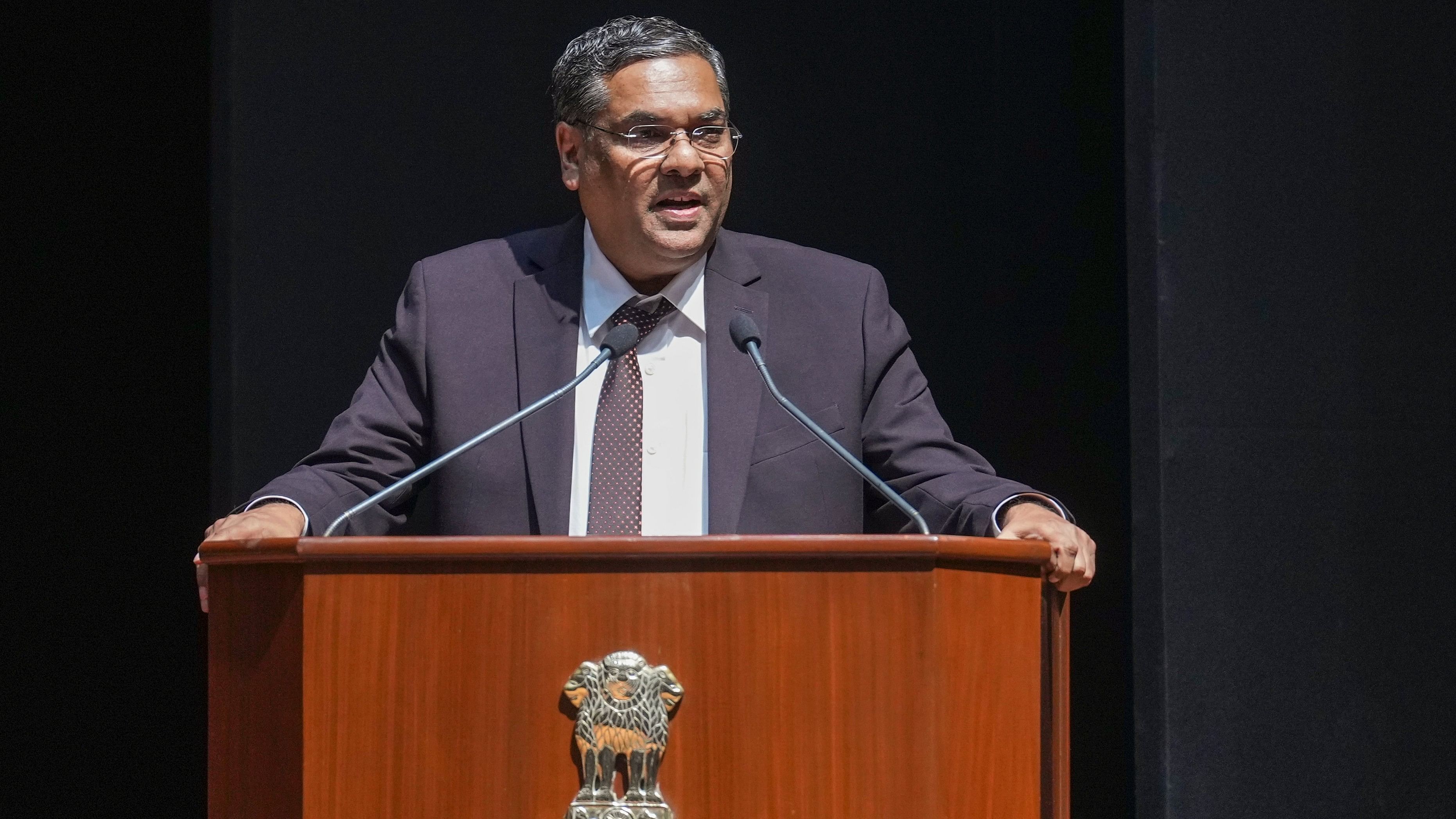
Supreme Court Justice Sanjiv Khanna.
Credit: PTI Photo
New Delhi: The swearing ceremony of Chief Justice of India-designate Sanjiv Khanna would take place here on Monday.
President Droupadi Murmu would administer the oath of office to Justice Khanna in a function on November 11 at 10 am in Rashtrapati Bhawan.
Justice Khanna, who would assume office on Monday itself, is the 51 st Chief Justice of India. He is the senior most judge in the Supreme Court.
Incumbent CJI D Y Chandrachud demitted office on Sunday after over two years term.
Justice Khanna's tenure would last till May 13, 2025.
The Centre officially notified Justice Khanna’s appointment on October 24 following Chief Justice Chandrachud’s recommendation on October 16. Friday was the last working day of Justice Chandrachud as the CJI and he was given a rousing farewell by judges, lawyers and staff of the apex court and the high courts.
Justice Khanna, who served as a Supreme Court judge since January 2019, has been part of several landmark judgements such as upholding the sanctity of EVMs, scrapping the electoral bonds scheme, upholding the abrogation of Article 370 and the grant of interim bail to former Delhi CM Arvind Kejriwal.
Hailing from an illustrious Delhi-based family, Justice Khanna is the son of former Delhi High Court judge Justice Dev Raj Khanna and the nephew of prominent former apex court judge H R Khanna.
Justice Sanjiv Khanna, who was elevated as a judge of the Supreme Court on January 18, 2019, was a third-generation lawyer before being appointed as judge of the high court. He is driven by the zeal to reduce pendency and speed up justice delivery.
Among the notable judgments of Justice Sanjiv Khanna in the Supreme Court is upholding the use of electronic voting machines in elections, saying the devices were secure and eliminated booth capturing and bogus voting.
He was also part of the five-judge bench that declared the electoral bond scheme, meant for funding political parties, as unconstitutional.
Justice Khanna was a part of the five-judge bench, which upheld the Centre's 2019 decision abrogating Article 370 of the Constitution which granted a special status to the erstwhile state of Jammu and Kashmir.
It was the Justice Khanna-led bench, which for the first time, granted interim bail to Kejriwal, the then chief minister, till June 1 to campaign in the Lok Sabha elections in the excise policy scam cases.
Born on May 14, 1960, he studied law at the Campus Law Centre of Delhi University.
Justice Khanna had also argued in a number of criminal cases at the Delhi High Court as an additional public prosecutor and as an amicus curiae.
(With PTI inputs)
